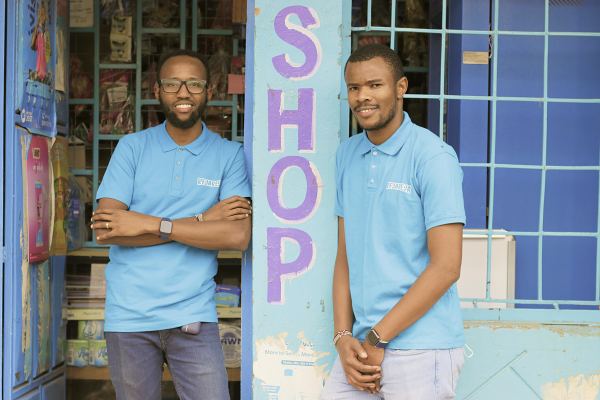A 2016 study by global consultancy PwC states that an estimated 90% of sales in Africa’s major economies come through informal channels like markets and kiosks. In sub-Saharan Africa, 90% of these household retail transactions are carried out via a network of about 100 million MSMEs.
Africa’s retail payments, mostly cash-based, is expected to reach $2.1 trillion by 2025. Kenya’s MarketForce wants to digitize a large portion of them. Today, the B2B retail end-to-end distribution platform is announcing the close of its $2 million pre-Series A round.
The investors who took part in this round include existing ones — P1 Ventures and Y Combinator, and new ones like Launch Africa, V8 Capital, Future Africa, GreenHouse Capital, Rebel Fund, Remapped Ventures, and some unnamed angel investors.
MarketForce has raised a total of $2.5 million, which includes its $350,000 seed round last year and $150,000 check from Y Combinator as part of the accelerator’s Summer 2020 batch .
Tesh Mbaabu and Mesongo Sibuti founded MarketForce in 2018. The founders wanted to solve the fragmentation issue they noticed among small retail shops and their distribution networks. In addition, these shops are often used as points for offering financial services to the everyday Kenyan. Thus, MarketForce’s play enables the optimized distribution of FMCG goods and financial services through this network of agents.
It was this business that got the startup into Y Combinator. But upon graduation, MarketForce decided to tests its hands on another model: RejaReja, a B2B e-commerce marketplace for merchants.
RejaReja was launched in December 2020. The platform helps informal retail merchants buy and sell FMCGs and digital financial services. With RejaReja, MarketForce joins a growing list of startups like TradeDepot and Sokowatch trying to revamp supply-chain markets for Africa’s informal retailers. RejaReja offers next-day delivery for hundreds of SKUs from a handful of FMCG brands. Though the trademark MarketForce retail distribution product is still very much thriving, RejaReja is where the founders think most of the company’s best opportunities lie.
“We’ve run both models simultaneously and we’ve seen much faster traction on the e-commerce side of the marketplace. We’re investing more and more resources into that, and the pre-Series A round was raised to focus on scaling that platform,” CEO said to TechCrunch.
Last month, MarketForce announced the acquisition of another Kenyan retail platform Digiduka. The platform allows informal retailers to resell digital services like airtime, electricity tokens, and bill payments. Digiduka’s acquisition saw that it was fully […]
